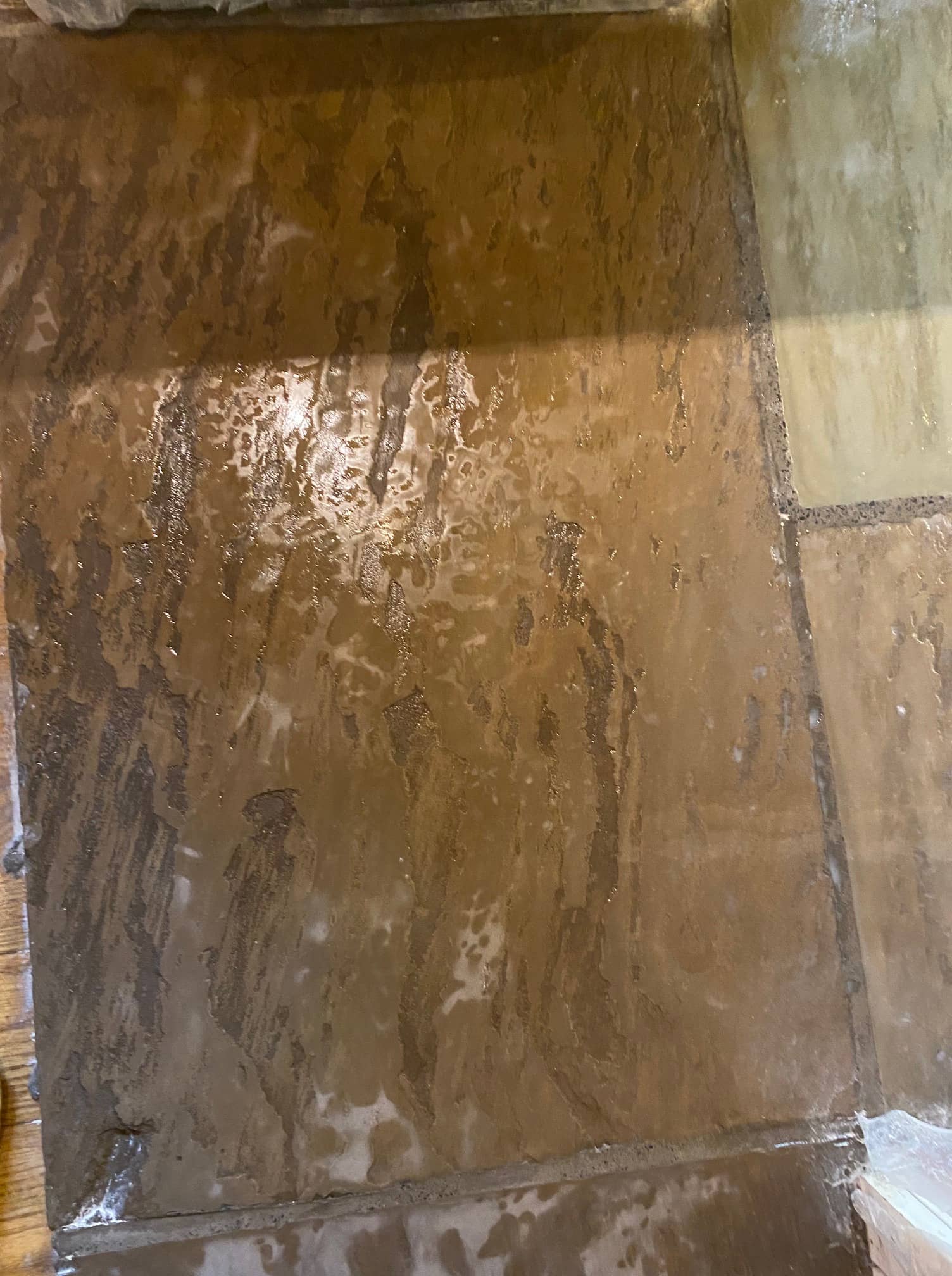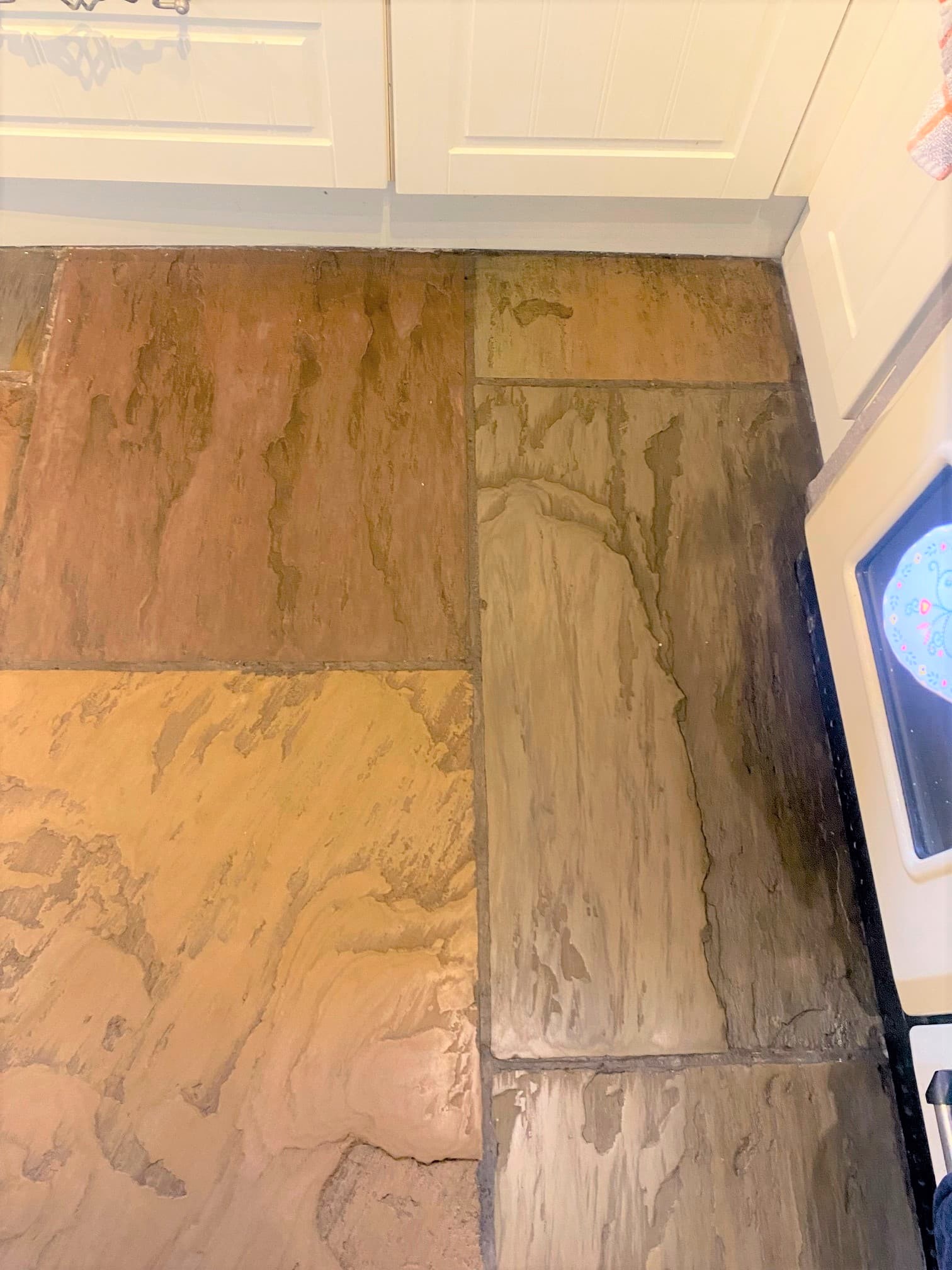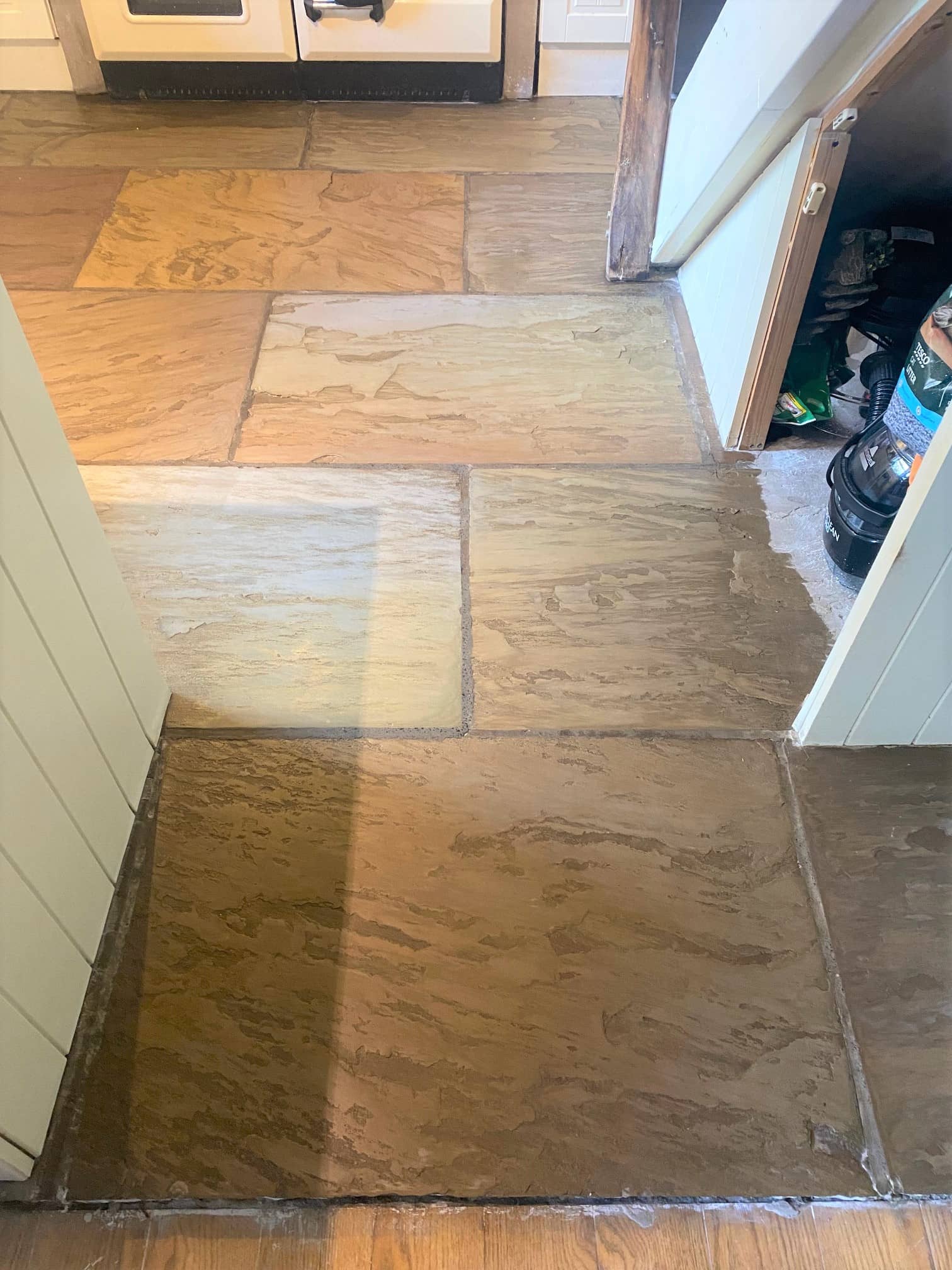Due to the textured nature of the Indian Sandstone tiles installed their kitchen, this client from Garstang was having trouble keeping their stone floor clean. Having decided enough was enough they contacted Tile Doctor to see what could be done to rectify the problem.
I went over to survey the floor and could see dirt was being trapped in the riven surface of the Sandstone and any sealer put there to protect the stone had long since worn off. I find the best solution for rough stone floors like these is to mill the stone with coarse diamond pads thereby removing the grubby surface layer and revealing a new surface underneath. This action also flattens the stone to remove the roughness and makes it easier to maintain.

I provided a price for milling the stone, cleaning up the grout lines and then applying a new sealer to protect it going forward. Happy with the price, the client arranged to purchase the required products, and we booked in a date for the work to commence. It was only a small 5 m2 area so I was happy that it could be done by one Tile Doctor over a couple of days.
Cleaning and Restoring an Indian Sandstone Tiled Kitchen Floor
To mill the Sandstone, we use a couple of very coarse milling pads of different grades which are applied to the stone with water for lubrication. The pads are fitted to a rotary floor machine to which extra weight is added to ensure a good contact with the stone. The floor was rinsed with water as I progressed, and the soiling generated was extracted with a wet vacuum.

Circular pads do struggle to maintain contact with the edges and especially corners so this is done manually using a set of hand-held diamond blocks. I also scrubbed the grout lines with Tile Doctor Pro-Clean to get the lines as clean as possible.
It’s worth noting that Indian Sandstone is full of iron and a lot harder to mill compared to English Sandstone, Flagstone, and Slate etc. As a result, it took most of the first day to complete this stage.
Sealing an Indian Sandstone Tiled Kitchen Floor
Once milled and cleaned I left the sandstone to dry off overnight and then called back the next day to apply the sealer. For this floor we went with Tile Doctor X-Tra Seal which is a breathable oil-based sealer that contains a colour enhancing formula to improve the general appearance of the stone.

What might not be noticeable from the pictures is the smoothness of the stone after it’s been milled, this makes it a lot easier to clean and makes it a lot less absorbent to dirt and muck etc.
The fresh sealer will maintain its appearance for many many years to come and maybe in another 100 years it will need to be milled again.

It always helps to use the right product when cleaning stone after it’s been sealed, so we dropped off a bottle of pH Neutral Cleaner for the client which we call Tile Doctor Neutral Tile Cleaner. This will ensure easy maintenance without damaging the sealer.


Never use a strong cleaning product or steam cleaner for the regular cleaning of sealed tile or stone as this will reduce the life of the sealer. We recommend using a specialist tile cleaning product such as Tile Doctor Neutral Tile Cleaner or Stone Soap for the regular cleaning of sealed surfaces, if you do use another product always read the label first, most supermarket tile cleaners are only suitable for use on Ceramic, Porcelain or Vinyl tiles.